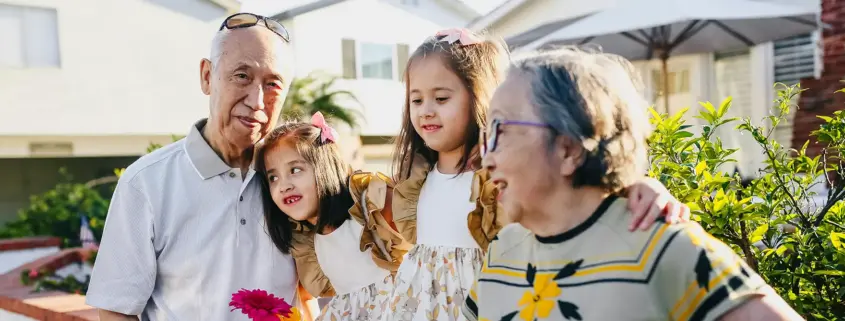Understanding Your Rights as a Grandparent
In many families, grandparents play a crucial role in the lives of their grandchildren. Grandparents offer love, support, the wisdom of years and guidance through difficult times. Unfortunately, there are situations in which grandparents may face obstacles in maintaining meaningful relationships with their grandchildren. Pennsylvania recognizes the significance of these relationships and has established certain rights as well as legal provisions aimed at protecting the interests of grandparents.
But in custody fights, grandparents can feel like they’re on the outside looking in. A broken family is a tragedy, and grandparents doing their best to help the kids can find themselves barred from a role in ongoing proceedings. In today’s blog post, we will outline grandparent’s legal rights available to you in order to safeguard and nurture those relationships and give some thoughts on how you can increase your participation in the legal battle.
The term “grandparent’s rights” encompasses a variety of legal rights, including visitation, custody and adoption. The law recognizes the importance of protecting the bond between grandparents and grandchildren. The law also acknowledges that keeping said bond is beneficial for children’s emotional well-being and overall development, and Pennsylvania courts have held that grandparents do have rights in certain situations.
Parents Generally Have the Right to Control Custody and Visitation
At the outset, it’s important to note that parents generally have the power to control who gets the chance to spend time with their children. Where both parents are in agreement to keep a grandparent away from the children, their wishes will usually be upheld by a Court. A more common situation arises where, during a custody fight, one parent tries to keep the other set of grandparents away from the children. In this case, courts in Pennsylvania will often roll the grandparents’ rights in with the parent who will give them access.
Visitation Rights
But even where both parents agree, grandparents can still establish independent standing to see the children. The state recognizes that there may be situations where the child’s parent may restrict access to grandparents wrongly. In considering a grandparent’s request to see the children over parental objection, a Pennsylvania judge will consider a variety of factors in order to decipher whether granting the grandparent’s visitation would be in the best interest of the child.
Pennsylvania courts generally use three factors to make this determination:
- The grandparent must have a genuine relationship with the grandchild, either a significant existing one or have actively sought to establish one with the consent of a parent.
- The court must find that grandparent visitation would be in the best interests of the child.
- The child’s parents have either filed for divorce or separation or not been together for at least six months.
In rare circumstances, the Court may ignore some of these factors, especially where the best interest of the child predominates. In situations where an older child tells the Judge that they want to see the grandparents, this preference can also bear weight. But courts will penalize family members who are found to have pressured a child to have a preference.
Custody Rights
In certain situations, either due to divorce or death, grandparents may seek to pursue custody of the child even over a custodial parent, or to share custody with that parent. Grandparents are sometimes given partial custody if the remaining parent is too stricken by grief or physical injury to care full time for the child. In other situations, where a contentious relationship has existed, grandparents can be given partial custody if doing so is in the best interest of the child.
In making custody determinations, the court will consider several factors including:
- the child’s relationship to the grandparent,
- the grandparent’s ability to give the child a stable environment, and
- the child’s well-being.
Where the child is at risk of harm in the parent’s care, and where the child resided with the grandparents previously, the claim of the grandparents is stronger.
Adoption Rights
Under certain circumstances, Pennsylvania law allows grandparents to adopt their grandchildren. Adoption grants grandparents’ full parental responsibilities and rights, giving them the ability to make important decisions pertaining to the child. Adoption is a lengthy process, and it takes into account the situation giving rise to the need for adoption. In cases of death, the wishes of parents in a valid Will generally control, but where no Will exists, or where the parents have not died but are unable to care for their children, a custody and adoption process is often required.
Conclusion
Grandparents have a special place in the lives of their grandchildren, especially when they are facing the instability of a broken nuclear family. Whether it be through visitation rights, custody arrangements or even adoption, the law gives options for the relationship to be protected. If you are having difficulty figuring out what is right for your situation and don’t know where to start, contact our attorneys at Cornerstone Law Firm to guide you and advocate for your rights as a grandparent.



